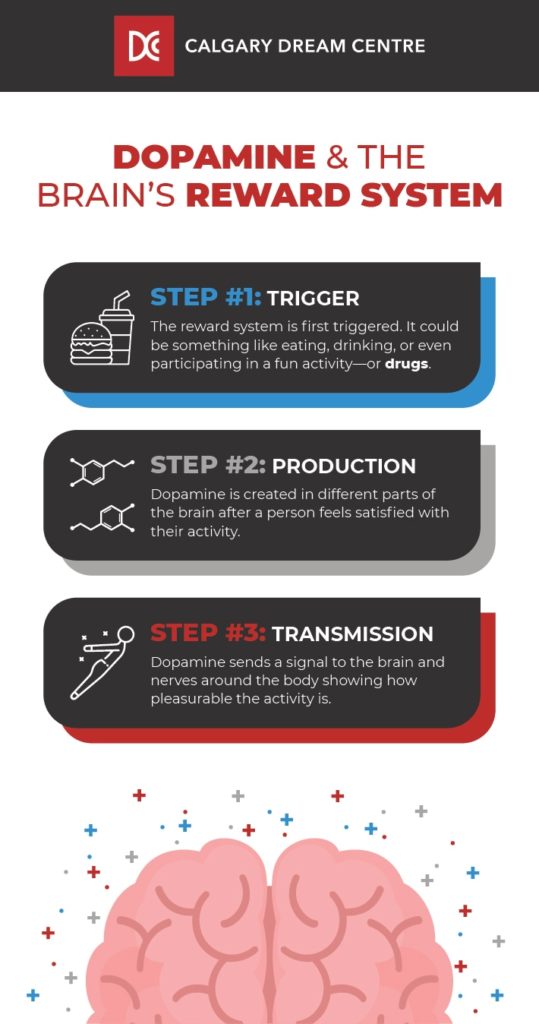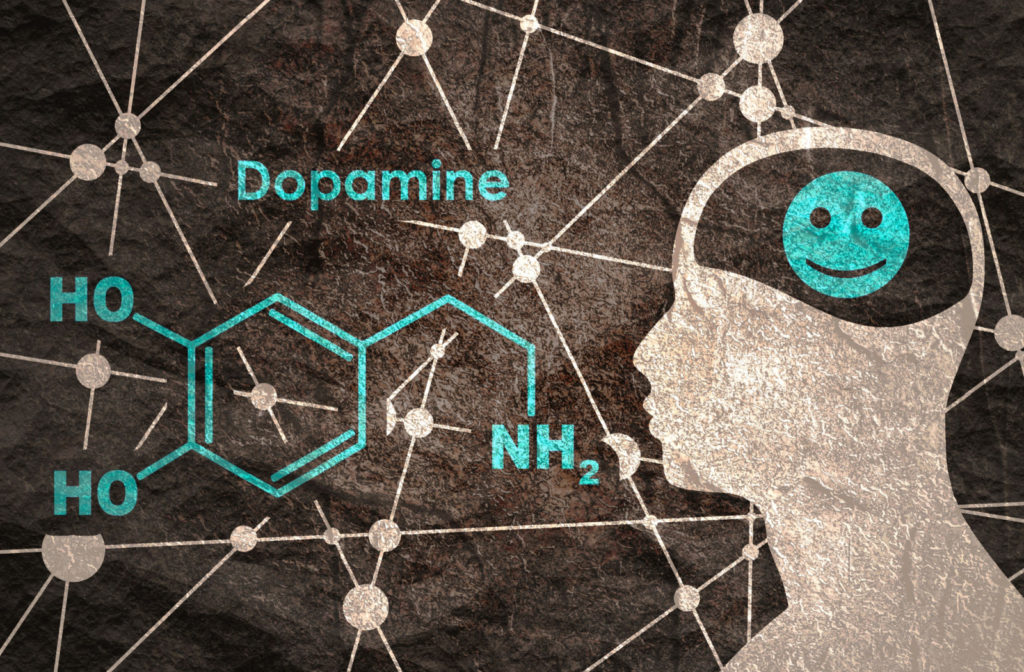Almost 21% of the Canadian population will experience addiction at some point in their lives. Drug addictions account for a significant portion of addicted people, with some common examples being cannabis and opioid painkillers.
It’s crucial to understand how people get addicted to drugs in the first place before we can provide any help. Learning to recognize these signs and understanding how addiction works can leave you better equipped to care for yourself and others to get the help they need.
Understanding the Brain’s Reward System
Our brains receive pleasure from a great many different things. The satisfaction of learning something new as a child, achieving a new milestone throughout adolescence, or participating in a high-intensity, adrenaline-pumping activity as an adult are just a few examples.
When the brain is satisfied, it releases a hormone called dopamine. Dopamine is a neurotransmitter that communicates messages to nerve cells in the brain so it can deliver them to the rest of the body. It’s sometimes called the “feel-good hormone.”
Exciting activities aren’t the only things that trigger the brain’s reward system. It gets triggered when we eat, drink, sleep, or do other basic tasks required for survival. People feel happy, even euphoric, with high dopamine levels. Some people may feel fatigued, unhappy, and even depressed without dopamine.
Dopamine plays an integral role in understanding why people get addicted to drugs. At a basic level, drugs rewire the brain’s reward system. When a person uses a drug like cannabis or methamphetamine, for example, their brain releases a high level of dopamine that becomes addictive.

Addiction Development
A person’s journey down the path of addiction is profoundly personal and constantly influenced by their reliance on drugs. Our brains are hardwired to seek out dopamine at all times. When trained to rely on drugs for their dopamine kick, people with addiction continue seeking that “high” in a seemingly easy-to-access form.
The first time a person uses a drug, they may feel extreme satisfaction with high levels of dopamine transmitted. This first dopamine hit is the beginning of addiction. The problem with continuously seeking dopamine through drug use is that it eventually stops working.
The next time a person uses the drug, they’ll get a dopamine kick, but it won’t be as intense as the first one. Subsequently, that kick won’t last as long as the first one. In most cases, a person with an addiction will seek out another hit, another, and another until they numb themselves to the drug’s effects.
The other factor in addiction development is the lack of dopamine a person gets from other places. An addict relies on the drug for dopamine and doesn’t get the same satisfaction they once might have from everyday survival activities.

Risk Factors for Drug Addiction
There are a couple of key risk factors for drug addiction. These are crucial to be aware of, so you can recognize them not only in yourself but in your loved ones. The number one element to consider is that anybody can become addicted to drugs if exposed to them.
Environment
A person’s environment plays an integral role in their risk of developing an addiction. If a person is exposed to drugs in their everyday life, they may be more likely to try those drugs. The top 3 most common drugs for addiction are cannabis, opioid pain relievers, and cocaine.
When considering a person’s environment, we also need to examine their life experiences. People with a history of physical and sexual abuse or those without educated parental guidance are more likely to try and become addicted to drugs.
Genetics
Research shows that people with a history of addiction in their family are more likely to become addicted themselves. When a person uses cocaine, for example, it can mark their DNA and increase the production of proteins associated with addiction.
A person with parents who have an addiction may already be born with genetic markers that make addiction more likely for them. That being said, environment and drug exposure play a more significant role in addiction development.
Recovery & Renewal
The path to addiction recovery can be a long and lonely one. After understanding why people get addicted to drugs, you can now recognize risk factors in yourself and your loved ones when it comes to addiction. People often require professional assistance for addiction recovery. Support programs and resources are available at Calgary Dream Centre to make it easier. Let us get started on that journey together.



